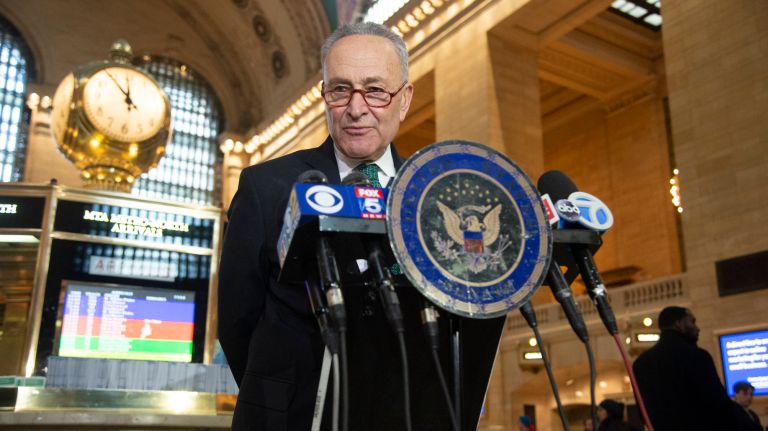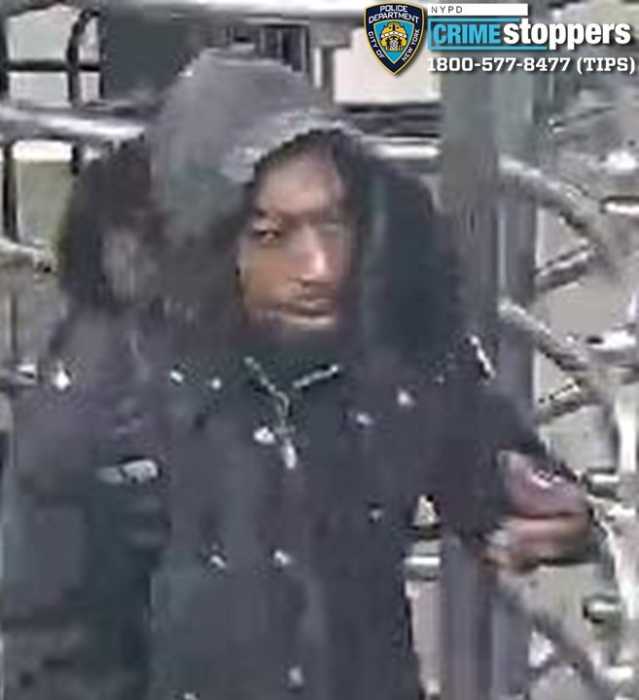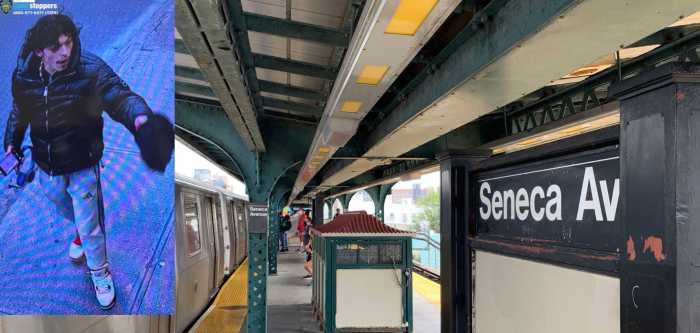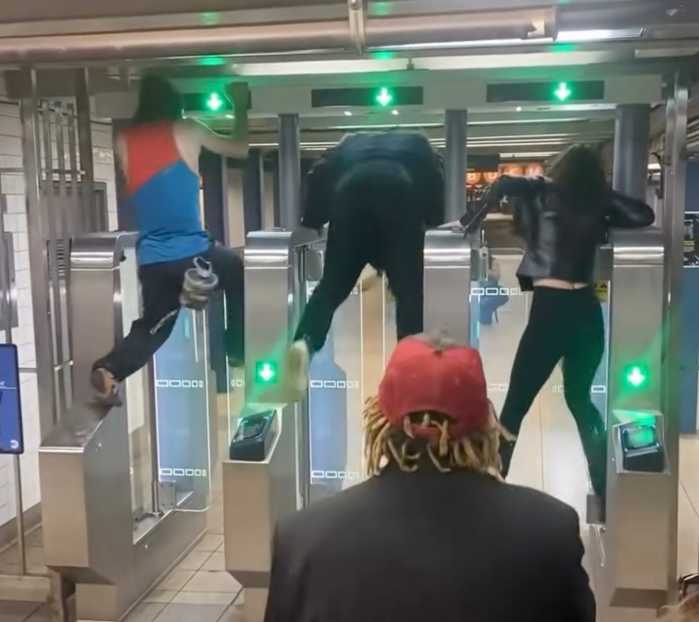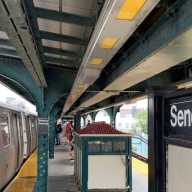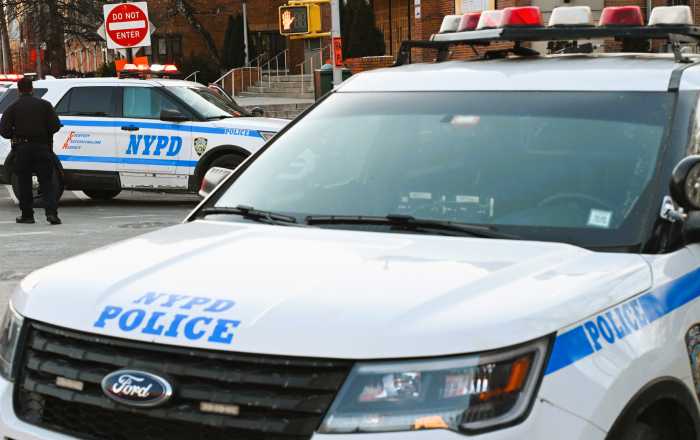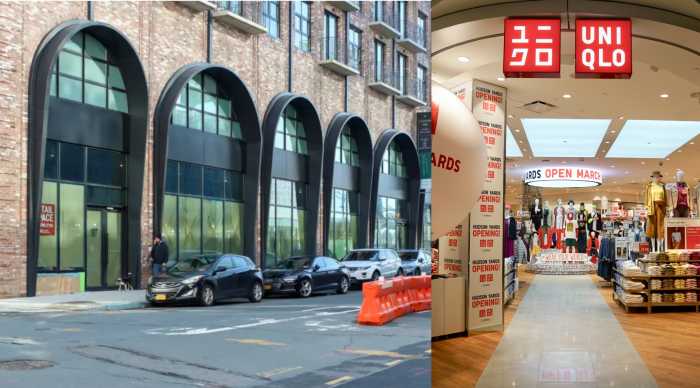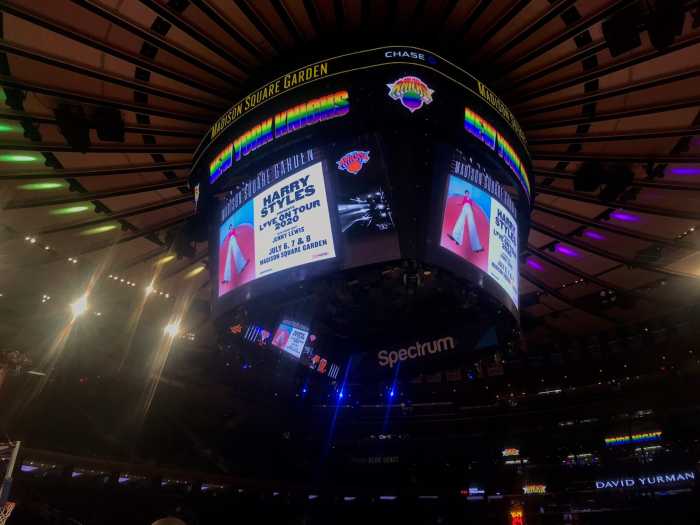
Senate Minority Leader Charles Schumer called for a federal investigation on Sunday into the Long Island Rail Road’s installation of crash-prevention technology, following another project setback.
The Metropolitan Transportation Authority disclosed last week that the installation of the technology, known as Positive Train Control, hit another hurdle: more than 4,000 installed scanner antennas for the project were faulty and had to be recalled for a contractor mistake, potentially jeopardizing the cost and completion of the work.
PTC incorporates radio transponders along tracks and antennas installed underneath trains to stop a train automatically if it is at risk of being involved in an accident. Schumer said the Federal Railroad Administration must look into what went wrong, whether the MTA can recoup potential costs, and how to avoid such errors in future.
“Unfortunately this is a ‘Perils of Pauline’ saga and the MTA never seems to get it right,” Schumer said during a news conference in Grand Central Terminal, referencing the classic film serial. “We’re standing here today to make sure that PTC is implemented, because it saves lives.”
Representatives from the contractors — a joint venture between Bombardier Transportation and Siemens Rail Automation — acknowledged at an MTA board meeting last week that the scanners had to be recalled because it was discovered that the machine used to test the devices had not been recalibrated since 2016.
The contractors had alerted the MTA of the mistake last month. It was one of a variety of issues plaguing the $1 billion project, which under federal law must be completed by December 2020 if the MTA wants to avoid steep fines.
“This was a mistake in the way that it was set up,” said Paul Eliea, project director for Siemens, at the meeting last week. “Obviously, this hurts us quite a bit, not only in our reputation, but in the project, as well. We are sorry for it, and we have taken the correct steps to address it.”
Federal lawmakers initially required all railroads to have the equipment installed by the end of 2015. But after it became obvious that most railroads wouldn’t hit that mark, the deadline was pushed back to 2018 and 2020, if railroads met certain milestones by the 2018 date.
The technology would not have prevented the type of grade-crossing crash the LIRR experienced last week, when three people were killed in an accident at the School Street crossing in Westbury. PTC prevents trains from going too fast, violating signals or hitting another train.
The MTA met the 2018 markers but expects the setback to increase the cost of the work. The agency is losing confidence that the contractors can meet their current schedule. Officials at the MTA and board members hammered the companies over their work at last week’s meeting.
It is not clear how much cost the scanner recall could add to the project. Schumer, who helped secure federal funding for PTC installation, said the investigation must look into whether the MTA can pass those costs to the contractors.
"On the heels of the equipment failure, we need the federal government to do a top-to-bottom review and find out what went wrong; who’s to blame; how to still meet the deadline and how to get the money back from those contractors who messed this up by selling the MTA faulty equipment,” Schumer said. “We also want to know, how did the MTA let this happen?”
MTA Managing Director Ronnie Hakim said in a statement that the authority would not be responsible for an increased price tag stemming form the scanner recall.
"We are deeply concerned with the outright and shocking failures displayed by Siemens and Bombardier and we’ve expressed that forcefully and directly as recently as Monday," Hakim said. "We are holding them to their contractual requirements to complete PTC implementation well within the federally mandated deadline and they will be required to correct their mistakes at their own cost, out of their own pockets.
"If Bombardier and Siemens hope to continue working with MTA on other endeavors, they must step up, as their performance has been unacceptable," she added.
A Siemens spokeswoman reiterated that the contractor will cover the cost of fixing the issue.
“We’re working in close collaboration with the MTA to ensure this does not impact the timeline for full installation and certification," the spokeswoman said.
With Alfonso A. Castillo



